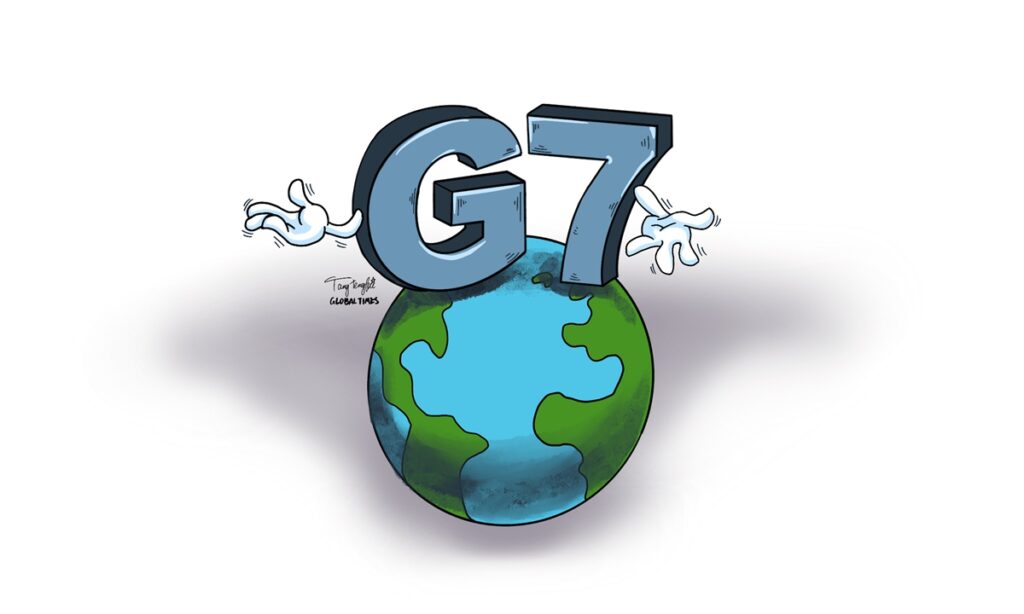With the UK as a host, some Western developed countries are reportedly planning to sit down and find solutions to reboot their economies. Reaching a consensus may not be an easy task for the countries, but more importantly, developed economies should be aware of the importance to redress ideological problems and make efforts to boost the global economy, instead of forming different clans and trying to make self-serving rules.
The UK is set to chair an online meeting of finance ministers and central bank officials from the Group of Seven on February 12, with one of the themes mapping a way out of the global economic crisis inflicted by COVID-19 pandemic, according to the Reuters.
With relatively poor dealing measures, the Western economies have been battered by multiple waves of COVID-19 onslaughts, lockdowns, as well as unprecedented recessions. Per IMF estimation in January, advanced economies may have shrunk by 4.9 percent in 2020.
Even though the countries have been the earliest to initiate vaccination, so far, there has been little evidence of the raging pandemic to be tamed in the near term, and most of the G7 members are still struggling in the virus quagmire, including the US and UK.
Reversing the economic downturn and returning to growth in 2021 is anything but an easy task for these countries. Effectively containing the virus in the second half of the year is their main hope for an improved 2021.
Also, limited tools are available to developed economies who have widely adopted easy monetary policies. By expanding investment only means roaring fiscal deficit.
In fact, stimulating measures of pouring money in market are never effective approaches to defeat recession. Only by implementing measures which can create inner growth momentum can the economy realize benign development and sustainable growth.
On the other hand, the G7 has seen decreasing influence over the global economy. As the whole world deals with economic stagnation, even though the small clique could map a way out of the recession, it couldn’t offset the overall economic contraction.
In reality, it is the emerging economies, over an extended period, that make increased contributions to the global economy by which the developed countries can be benefited from the progress as well.
Over the past few years, the world has seen a trend of growing protectionism and unilateralism from particularly within developed economies, undermining the global trade system and multilateral economic cooperation. During the post-pandemic era, further enhancing cliques or trying to write self-serving rules will hurt the global economy and eventually backfire.
It is crucial to close the divide between developed and developing countries and jointly bring about growth and prosperity for all, and cultivating a community with shared future for mankind.
Although there have been reports predicting a recovery or growth of the global economy over the year, multiple potential challenges are still in the way, including the rising risks of the US stock markets.
Under such circumstances, the developed economies should redress poorly designed policies such as anti-globalization and trade protectionism, and join together with broad international community and make its contribution to the overall recovery of the global economy which is the essential path for economies to get out the once-in-a-century public health crisis.
The article was compiled based on an interview with Huo Jianguo, a vice chairman of the China Society for World Trade Organization Studies in Beijing, and former president of the research institute of China’s Ministry of Commerce. bizopinion@globaltimes.com.cn
Illustration: Tang Tengfei/GT



